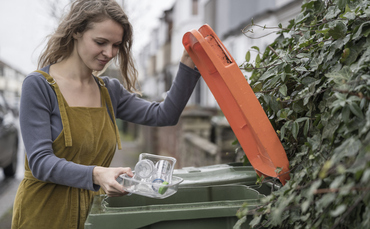
UK consumers have struggled to adopt more sustainable lifestyles over the past year due to tight household finances, according to a survey of 2,000 British adults carried out by Deloitte.
The results of the 2023 survey, published this week, found that 62 per cent cited cost concerns for not switching to more sustainable behaviours, marking a 10 per cent increase on those who cited the same reason last year.
Deloitte’s Sustainable Consumer Report this year also found that one in four – or 26 per cent – said they were prepared to pay more to protect biodiversity, 24 per cent said they would pay more for more sustainable products and packaging, and 25 per cent said they would pay more to buy from suppliers that respect human rights.
A third also said they had stopped purchasing certain brands or products due to ethical or sustainability-related concerns, according to the management consulting giant.
Most sustainable behaviours cited by respondents take place at home, with the majority – or 76 per cent – adopting activities such as recycling, while 68 per cent said they had reduced their household food waste and 64 per cent said they were trying to limit single-use plastics.
There also appears to have been an increase in the number of consumers adopting circulatory practices such as renewing, reusing, or recycling, in this year’s survey. The research showed that more than half – or 55 per cent – of respondents said they had repaired an item instead of replacing it, up from 53 per cent in 2022.
In addition, 46 per cent said they had bought second-hand or refurbished items – an increase on 40 per cent in 2022. 76 per cent also said they would consider using a repair service, which is up from 73 per cent in 2022, according to the survey findings.
Deloitte’s ESG lead for the consumer industry, Emily Cromwell, said the findings pointed to an uptick in sustainable behaviours among consumers, but she warned that cost of living pressures were having an adverse impact.
“Many consumers are beginning to actively consider sustainability when buying products and services, as well as considering their overall lifecycle,” she said. “The cost-of-living crisis is also having an impact, with sustainable behaviours that help people to spend less seeing the largest year-on-year uplift, and given inflationary pressures, the increasing adoption of circular practices could be more about saving money than saving the planet.”
She added: “Whatever the reason, the growth of conscious buying habits is welcome. The question is, how much of this behavioural change will become permanent?”
The report also said the survey suggested consumers had been cutting back on energy consumption where possible. Almost a quarter – or 23 per cent – said they switched to what they believe is a renewable energy supplier in the past 12 months, while 81 per cent have tried to lower their energy consumption by reducing their use of heating, and 74 per cent saying they now wash their clothes at a lower temperature.
Moreover, 25 per cent of respondents said they had invested in longer term-energy saving solutions such as home-insulation, 36 per cent said they had invested in solar panels and energy efficient appliances, and 31 per cent said they had invested in double glazing.
Over the next 12 months, while the majority said they would look to continue to reduce their energy consumption wherever possible, just over one in ten said they had longer-term plans such as installing solar panels or replacing a boiler with a heat pump, according to Deloitte.
“Consumers want businesses and institutions to take the lead in supporting them in their adoption of more environmentally sustainable habits and are prepared to be loyal to those who do,” explained Cromwell.
“It is key that businesses work together with policymakers not only to make sustainable choices more affordable, but also to share better information around the impact of buying choices on the environment. This will be key to support a long-term change in consumer behaviour.”
Keep up to date with all the latest green business news by signing up to the free Daily and Weekly BusinessGreen Newsletters.
